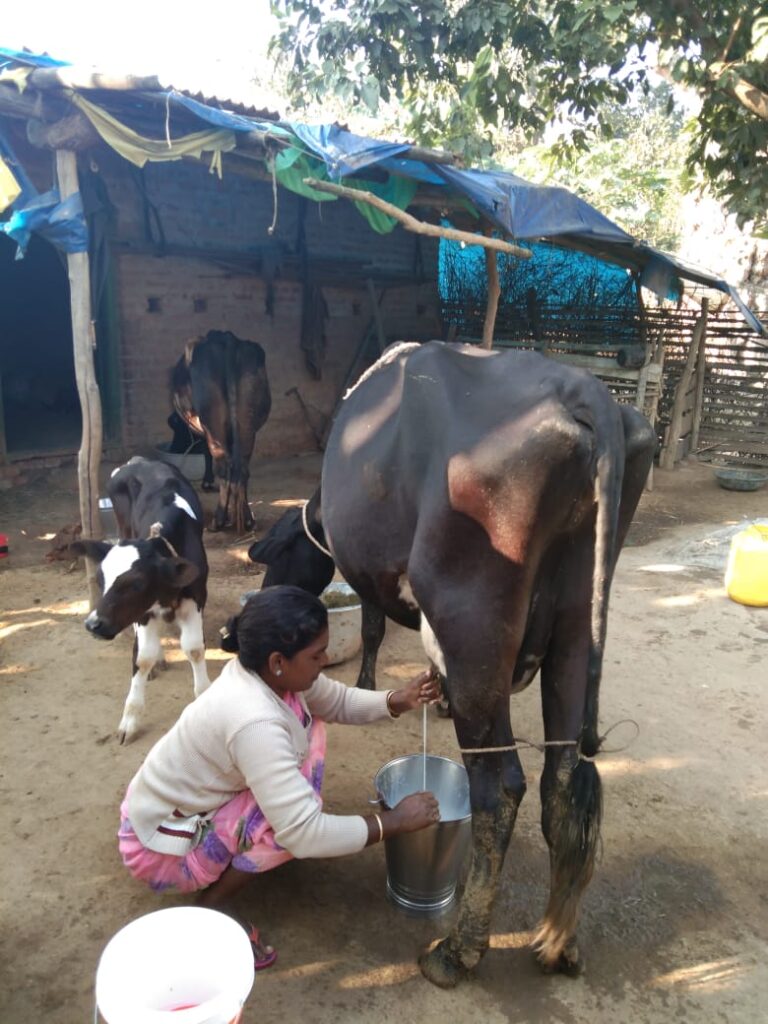Encouraging a multi-approach for better income- Story of Swati:
Swati Kerketta is a resident of Raitoli, Barkuli in Torpa, Jharkhand. From working as a daily wage labourer, today she is a proud small entrepreneur in her village. Swati comes from a small farmer family, but due to less income they could not invest much to produce enough crops to consume or sell. She and her husband had to always work as a daily wage labourer and be dependent on job work. The meager income was not sufficient to run their house and she was not able to save enough for her two children. Gradually she realised that this was not working out and discussed her problems with ladies from the local SHG. Further DBSS Chotanagpur intervened and helped her join the group and she learnt about additional income activities and how to save and invest. This was a life changing moment for her.
After consultation with the women’s group, the couple bought a milking cow was able to collect 6-8 litre milk per day to sell in Torpa. Slowly their family income began to increase and they were in a better position to run their household. In 2020, a gardening program began under MGNREGA and DBSS encouraged the community women to also apply under it. Swati also applied in it. However she got refused as officials said she won’t be able to take care of garden as her land was far from her village and too small in size. DBSS facilitated and requested Panchayat representatives to accept her application. Eventually she got the approval for gardening and planted 60 mango trees in ½ acre (approx.) of land. In future this will help her in getting a good price and earn a substantial amount in the future.
Swati’s story is a story of change and growth. With her sincere efforts and support of DBSS, she was able to revive her land and hopes for much better financial standing in future. Investing in more than one source of income proved beneficial for a sustainable livelihood.
CNI SBSS along with DBSS has been working with women in Jharkhand to disseminate information about different Government schemes in a focused manner to the deprived while simultaneously giving voice to people through collectivization (with specific focus on women beneficiaries). This access to different schemes will ensure sustained income for the deprived communities. Local church congregations are involved in the process as support system and to include them in development of their communities.



